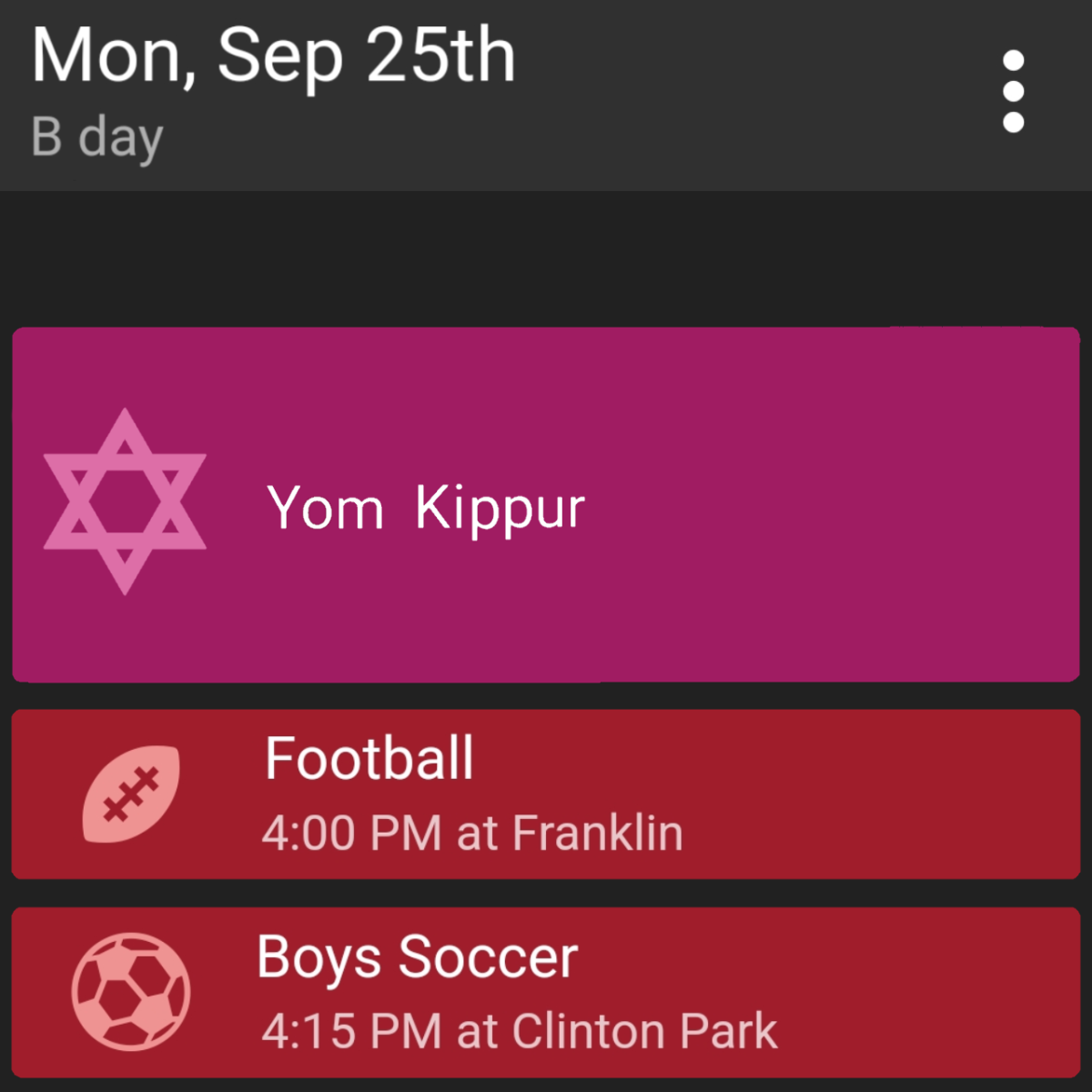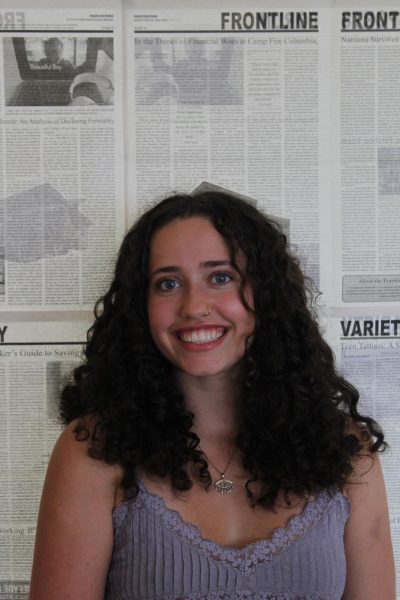Creating a district-wide sports schedule is a difficult challenge that often leads to sporting events conflicting with Jewish holidays. This means Jewish athletes are faced with a difficult decision almost every year: Deciding whether to honor their traditions and skip a game or practice for their sport, or choose to play and miss out on the holiday. Oftentimes in school sports, commitment to the team is rewarded, while missing a practice before a game will result in less playing time. “It means that we have to make decisions about whether we maintain our family integrity and be together for major events in each other’s lives, like sports games, or whether we affirm our cultural and religious traditions and customs,” Ben Anderson-Nathe, a parent of a Jewish student-athlete at Benson High School, says.
According to Jeffery Peeler, one of the Assistant District Athletic Directors for PPS, sports scheduling meetings start happening the spring before the school year, and it’s a very complicated process. Peeler mentioned many variables involved in the task of scheduling athletic events. For example, dances, finals week, and some national holidays have to be taken into account. In addition, there are a number of other factors that influence the schedule. “It’s not just as easy as picking arbitrary days. We have limited facility use […] We have limited use of parks, we’re very dependent on parks,” Peeler says, later going on to mention a “massive shortage in officials,” such as refs, line judges, bookkeepers, and others trained and hired officials to enforce sports game rules. He says that no one wants to have games on inconvenient dates, but the availability of these necessary locations are limiting their options.
“I think the bigger impact on the community is that it says, everyone is welcome here as long as you’re willing to assimilate to these norms. And if you don’t want to assimilate to these norms, that’s fine, but then just don’t participate,” Anderson-Nathe mentions. In our interview, he stated that conflicts with holidays go beyond sports. Oftentimes Back to School Night falls on Yom Kippur, the day of atonement. On this holiday, Jews ask for forgiveness for wrongdoings in the past year and spend the day fasting; it is known as the holiest of Jewish holidays. On numerous occasions, Anderson-Nathe also mentioned the feeling of othering with these repeated conflicts, saying that since this happens frequently, his family and the Jewish community want people to give Jewish holidays consideration when creating an athletic schedule.
Peeler brought up a term that is used in the district: playable days vs. non-playable days. Peeler says that he gets a list of non-playable days in order to work on scheduling. According to Peeler, Martin Luther King Jr. Day is considered a playable day in Portland Interscholastic League (PIL), although they might avoid putting games on it. “As of right now those [Jewish holidays] are playable days.” In order to decide what days are playable, PPS high school Athletic Directors have the ability to vote, so in order to make a change, the importance of the issue has to be known to them.
“I don’t think anyone is actually thinking, ‘oh, this doesn’t matter,’ but it matters so little that no one even thinks about it,” Anderson-Nathe argues. Of course, conflicts in schedules can’t always be avoided, especially on holidays that the majority of students don’t celebrate. However, according to Anderson-Nathe and many other Jewish individuals, this specific issue is one they feel can be avoided or at least addressed with more intention.
“Schedule around them [Jewish holidays] with the same degree of integrity and concern and care that we schedule around all of the other holidays both secular and Christian religious holidays,” says Anderson-Nathe, again describing the experience and hopes he and his family feel. The importance of the high holidays of Yom Kippur and Rosh Hashanah, which marks the beginning of the New Year and is a meaningful celebration that brings people together, is large amongst Jewish communities. Peeler also says that this issue has been brought up when he was an Athletic Director at Lincoln. “We’ve tried to make modifications at a school level,” he says, adding that at a district level it’s more difficult; dealing with a large amount of massive schedules makes it much harsher of a process to accommodate for different issues.
In order to create a schedule that works around non-playable days, the district must consider many variables, but Athletic Directors can vote on which days are considered non-playable. If you want to make a holiday non-playable, Peeler recommends letting your high school’s Athletic Director know. “I definitely don’t think there’s any wicked, mean, person sitting around trying to think about how to do people dirty, but I think that no one is so concerned about saying we need to make sure that we’re actually walking the talk of inclusion,” summarizes Anderson-Nathe.



































